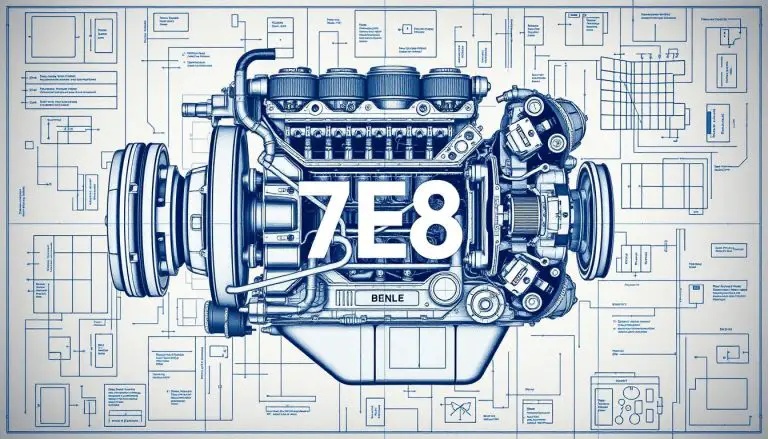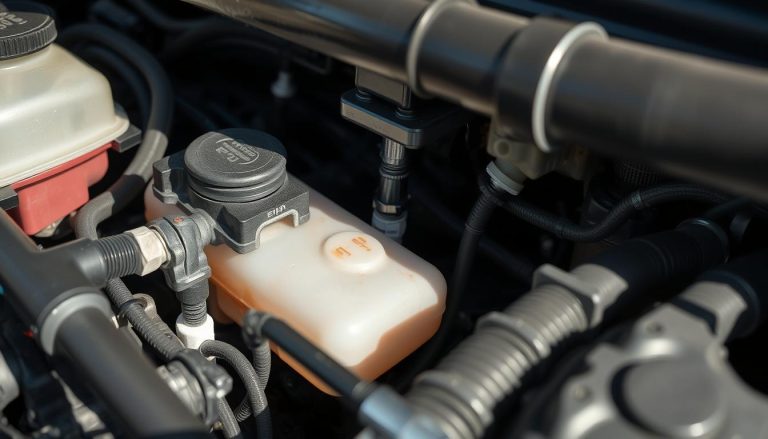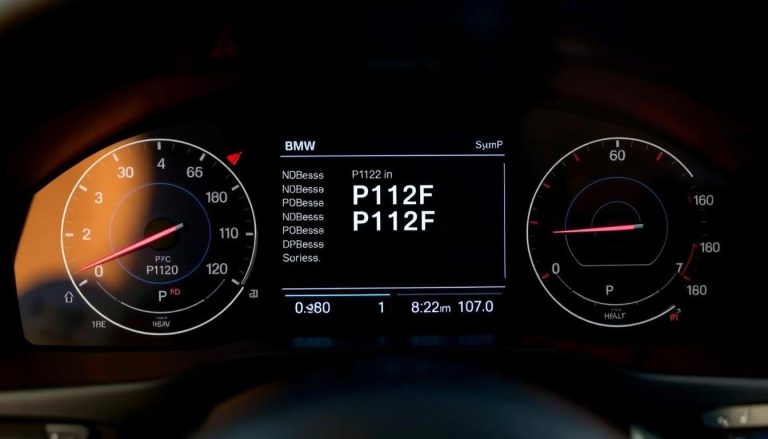When the check engine light illuminates on your dashboard, among the many trouble codes that could appear, P0356 stands out as a warning about an issue with your ignition system. This code specifically points to a malfunction in the primary or secondary circuit of Ignition Coil F. If you’re driving and notice this code, it’s essential to understand what’s at stake for your vehicle’s performance.
Ignoring this signal may lead to more significant problems down the road—both literally and figuratively. Let’s dive into everything you need to know about the P0356 code: its causes, symptoms, diagnosis process, potential fixes, and how you can prevent future occurrences.
What does the P0356 code mean?
The P0356 code is a diagnostic trouble code (DTC) that signals an issue with the ignition coil. Specifically, it pertains to Ignition Coil F’s primary or secondary circuit malfunction. This means there’s a problem affecting how electricity flows through this particular coil.
Ignition coils play a vital role in your vehicle’s engine by converting battery voltage into the high voltage needed to create sparks at the spark plugs. A malfunction can disrupt this process and lead to misfires, reduced power, and poor fuel efficiency.
When your car’s onboard computer detects this irregularity, it triggers the P0356 code as a warning signal. Addressing this issue promptly can prevent further damage and ensure your engine runs smoothly. Understanding what this code represents is crucial for any driver wanting to keep their vehicle in top shape.
What parts can be affected by P0356 code ?
The P0356 code primarily points to issues within the ignition system. The ignition coil F is at the center of this malfunction. It plays a critical role in generating the spark needed for engine combustion.
When this component fails, adjacent parts can also be impacted. For instance, spark plugs may wear out faster due to irregular firing patterns. This affects overall engine performance and efficiency.
Wiring harnesses connected to the ignition coil are another area of concern. Damaged wires or poor connections can lead to signal interruptions and further complications.
Additionally, the Engine Control Module (ECM) might register multiple faults if it detects issues stemming from an unreliable ignition system. This could trigger other diagnostic trouble codes alongside P0356, complicating repairs even more. Addressing these affected components promptly is essential for maintaining vehicle reliability and safety on the road.
What are the possible causes of a P0356 code?
A P0356 code indicates a malfunction in the ignition coil F primary or secondary circuit. Several factors can trigger this error.
One common cause is a faulty ignition coil itself. Worn-out components may fail to produce the necessary spark for proper engine operation.
Wiring issues often come into play as well. Damaged, frayed, or corroded wires can disrupt electrical signals between the coil and the engine control unit (ECU).
Additionally, connectors that are loose or contaminated may lead to poor connections, further complicating matters.
Another potential culprit is an issue with the ECU itself. A malfunctioning module could misinterpret signals related to ignition performance.
Problems with other related systems—like fuel delivery—might also contribute indirectly by affecting overall engine efficiency and triggering fault codes like P0356.
What are the common symptoms of a P0356 code?
When your vehicle’s computer detects a P0356 code, it often triggers several noticeable symptoms. One of the most common signs is a rough idle. You might feel vibrations or hear unusual noises when the engine runs at low speeds.
Frequent misfires may also occur, leading to poor acceleration and decreased engine performance. This can make driving less enjoyable and more frustrating.
You could also experience issues with starting your car. A faulty ignition coil can prevent proper firing of the cylinders, making it hard to get going in the morning or after short stops.
Additionally, keep an eye on your check engine light; it’s likely to illuminate whenever this code appears. If you’re experiencing these symptoms, addressing them sooner rather than later is crucial for maintaining your vehicle’s health.
What are the diagnostic steps for a P0356 code?
To diagnose a P0356 code, start by connecting an OBD-II scanner to your vehicle’s diagnostic port. This tool retrieves the trouble codes stored in the engine control unit (ECU).
Next, take note of any other related codes that may appear. Sometimes multiple issues can arise simultaneously, providing clues for further investigation.
Inspect the ignition coil wiring and connectors for signs of damage or corrosion. Loose connections can lead to circuit malfunctions that trigger this code.
Testing the ignition coil itself is crucial. Use a multimeter to check resistance levels within specified ranges as outlined in your vehicle’s manual.
Examine surrounding components such as spark plugs and fuel injectors. Any malfunction here could contribute to misfires or performance issues linked with a P0356 code, leading you closer to isolating the root cause effectively.
How serious Is the P0356 Code? Can I continue driving with the P0356 code?
The P0356 code indicates a malfunction in the ignition coil’s primary or secondary circuit. This problem can severely impact your vehicle’s performance.
If you continue driving with this code, you might experience misfires, poor acceleration, and rough idling. Ignoring these symptoms could lead to more significant engine damage over time.
Additionally, subpar ignition performance often increases fuel consumption. You may find yourself making more frequent trips to the gas station.
While it’s possible to drive for a short period after receiving this code, it’s not recommended for long-term use. Addressing the issue promptly is essential for maintaining optimal engine health and safety on the road.
What are the repair solutions for a P0356 – Ignition Coil F Primary/Secondary Circuit Malfunction ?
Repairing a P0356 code typically starts with inspecting the ignition coil itself. If it’s faulty, replacing it can often resolve the issue.
Next, check all related wiring and connectors for signs of damage or corrosion. Sometimes, simply cleaning or repairing these components can restore proper signal transmission.
If the ignition module is at fault, you may need to replace that as well. This component plays a crucial role in controlling your coils’ operation.
In some cases, updates to engine control software might be necessary. A professional scan tool can help determine if this applies to your situation.
Always ensure that any repairs are followed by clearing error codes and performing a test drive. This ensures everything operates smoothly after fixing the malfunction.
How long and How much does it cost to diagnose and repair a P0356 code?
Diagnosing a P0356 code typically takes one to two hours at a mechanic’s shop. Labor costs can vary, usually ranging from $75 to $150 per hour based on your location and the technician’s experience.
Once diagnosed, repair costs depend on the underlying issue. If it’s merely a faulty ignition coil, expect to pay between $100 and $300 for parts and labor combined. However, if wiring issues or more complex problems arise, repairs could push the total cost up significantly.
Always request an estimate before proceeding with repairs. Some shops might offer free diagnostics as part of their service specials. This could save you some cash upfront while helping identify what needs fixing right away.
How can I avoid a P0356 code?
Preventing a P0356 code starts with regular vehicle maintenance. Routine checks on your ignition system can save you from future headaches.
Keep an eye on the condition of your spark plugs and wires. Replacing them at recommended intervals ensures optimal performance.
Make sure to use high-quality fuel. Poor quality gasoline can lead to misfires and increased wear on your engine components.
Monitor the battery voltage regularly. A weak battery can affect the ignition coil’s operation, leading to potential circuit malfunctions.
Consider investing in professional diagnostic services if you notice any irregularities in engine performance early on. Timely intervention is key to avoiding this trouble code altogether.
What happens if you ignore a P0356 code?
Ignoring a P0356 code can lead to a cascade of issues. The ignition coil malfunction affects your engine’s performance, resulting in misfires or rough idling. This not only compromises driving comfort but potentially causes further damage.
As the problems escalate, you may notice reduced fuel efficiency. A struggling engine consumes more fuel, leading to increased costs at the pump and stressing your budget.
Additionally, continued neglect could trigger other codes related to the ignition system. Each new code adds complexity and magnifies repair expenses down the line.
The risk of being stranded on the road also increases. An unresolved issue might leave you with an unreliable vehicle when you need it most.
In essence, overlooking this warning signal isn’t just about one error code; it’s about maintaining overall vehicle health for safety and reliability.
Is the P0356 code specific to certain car makes or models?
The P0356 code is not limited to specific car makes or models. It can appear in various vehicles across different manufacturers. Many modern cars equipped with ignition coil systems may trigger this error.
However, some brands are more prone to this issue than others due to design and engineering factors. For instance, certain lines of Ford or GM vehicles often report P0356 codes more frequently.
Car owners should be aware that while the code itself is universal, its underlying causes might differ based on the vehicle’s make and model. Factors such as engine type, wiring harness configuration, and ignition system design play significant roles in how the P0356 manifests.
Regardless of brand loyalty, understanding your vehicle’s unique characteristics can provide valuable insight into potential issues related to the P0356 code. This awareness aids in timely diagnosis and effective repairs.
What other codes may be related to P0356?
When dealing with the P0356 code, it’s important to be aware of other diagnostic trouble codes (DTCs) that may come into play. These related codes can provide additional insight into potential issues within your vehicle’s ignition system or engine performance.
Some common codes associated with P0356 include:
– **P0300**: This code indicates random/multiple cylinder misfire detected. It often appears alongside ignition coil issues.
– **P0301-P0308**: These are specific misfire codes for each cylinder. If you see these alongside P0356, it points to individual cylinders having problems due to a faulty ignition coil or related components.
– **P0365**: This refers specifically to the camshaft position sensor circuit malfunction and could indicate timing issues affecting engine operation.
– **P0201-P0204**: Injector circuit faults may also appear as these affect fuel delivery in conjunction with spark from the coils.
Being mindful of these related error codes can help pinpoint whether you’re facing multiple issues or if they stem from a singular problem like a malfunctioning ignition coil. Addressing them promptly will ensure optimal vehicle performance and prevent further complications down the line. Always consult with a professional mechanic for accurate diagnosis and repair recommendations tailored to your automobile’s specific needs.


